Küppersbusch FKG9500.0I User manual
- Category
- Freezers
- Type
- User manual

BEDIENUNGSANWEISUNG
mit Montageanweisungen
INSTRUCTIONS FOR USE
and installation
Lesen Sie unbedingt die Gebrauchsanleitung
und den Montageplan vor Aufstellung,
Installation sowie Inbetriebnahme.
Please read the users and installation
instructions carefully before installation
of the appliance and before starting to use it.
Service und Kundendienst
Telefon: 0209 – 401 631
Email: [email protected]
FKG9500.0I
EN DE

CONTENTS
Safety information 2
Safety instructions 3
Operation 5
Daily use 7
Hints and tips 9
Care and cleaning 10
Troubleshooting 11
Installation 13
Technical data 19
Subject to change without notice.
SAFETY INFORMATION
Before the installation and use of the appliance, carefully
read the supplied instructions. The manufacturer is not
responsible for any injuries or damages that are the result of
incorrect installation or usage. Always keep the instructions
in a safe and accessible location for future reference.
Children and vulnerable people safety
• This appliance can be used by children aged from 8 years
and above and persons with reduced physical, sensory or
mental capabilities or lack of experience and knowledge if
they have been given supervision or instruction concerning
the use of the appliance in a safe way and understand the
hazards involved.
• This appliance may be used by children between 3 and 8
years of age and persons with very extensive and complex
disabilities, if they have been properly instructed.
• Children of less than 3 years of age should be kept away
unless continuously supervised.
• Do not let children play with the appliance.
• Children shall not carry out cleaning and user maintenance
of the appliance without supervision.
• Keep all packaging away from children and dispose of it
appropriately.
General Safety
• This appliance is intended to be used in household and
similar applications such as:
2

– Farm houses; staff kitchen areas in shops, offices and
other working environments
– By clients in hotels, motels, bed and breakfast and other
residential type environments
• Keep ventilation openings, in the appliance enclosure or in
the built-in structure, clear of obstruction.
• Do not use mechanical devices or other means to
accelerate the defrosting process, other than those
recommended by the manufacturer.
• Do not damage the refrigerant circuit.
• Do not use electrical appliances inside the food storage
compartments of the appliance, unless they are of the type
recommended by the manufacturer.
• Do not use water spray and steam to clean the appliance.
• Clean the appliance with a moist soft cloth. Only use
neutral detergents. Do not use abrasive products, abrasive
cleaning pads, solvents or metal objects.
• Do not store explosive substances such as aerosol cans
with a flammable propellant in this appliance.
• If the supply cord is damaged, it must be replaced by the
manufacturer, its Authorised Service Centre or similarly
qualified persons in order to avoid a hazard.
SAFETY INSTRUCTIONS
Installation
WARNING! Only a qualified
person must install this
appliance.
• Remove all the packaging and the
transit bolts.
• Do not install or use a damaged
appliance.
• Follow the installation instructions
supplied with the appliance.
• Always take care when moving the
appliance as it is heavy. Always use
safety gloves and enclosed footwear.
• Make sure the air can circulate around
the appliance.
• At first installation or after reversing the
door wait at least 4 hours before
connecting the appliance to the power
supply. This is to allow the oil to flow
back in the compressor.
• Before carrying out any operations on
the appliance (e.g. reversing the door),
remove the plug from the power socket.
• Do not install the appliance close to
radiators or cookers, ovens or hobs.
• Do not install the appliance where there
is direct sunlight.
• Do not install this appliance in areas
that are too humid or too cold.
• When you move the appliance, lift it by
the front edge to avoid scratching the
floor.
3

• The appliance contains a bag of
desiccant. This is not a toy. This is not
food. Please dispose of it immediately.
Electrical connection
WARNING! Risk of fire and
electric shock.
• The appliance must be earthed.
• Make sure that the parameters on the
rating plate are compatible with the
electrical ratings of the mains power
supply.
• Always use a correctly installed
shockproof socket.
• Do not use multi-plug adapters and
extension cables.
• Make sure not to cause damage to the
electrical components (e.g. mains plug,
mains cable, compressor). Contact the
Authorised Service Centre or an
electrician to change the electrical
components.
• The mains cable must stay below the
level of the mains plug.
• Connect the mains plug to the mains
socket only at the end of the
installation. Make sure that there is
access to the mains plug after the
installation.
• Do not pull the mains cable to
disconnect the appliance. Always pull
the mains plug.
Use
WARNING! Risk of injury,
burns, electric shock or fire.
• Do not change the specification of this
appliance.
• Do not put electrical appliances (e.g.
ice cream makers) in the appliance
unless they are stated applicable by the
manufacturer.
• Be careful not to cause damage to the
refrigerant circuit. It contains isobutane
(R600a), a natural gas with a high level
of environmental compatibility. This gas
is flammable.
• If damage occurs to the refrigerant
circuit, make sure that there are no
flames and sources of ignition in the
room. Ventilate the room.
• Do not let hot items to touch the plastic
parts of the appliance.
• Do not put soft drinks in the freezer
compartment. This will create pressure
on the drink container.
• Do not store flammable gas and liquid
in the appliance.
• Do not put flammable products or items
that are wet with flammable products
in, near or on the appliance.
• Do not touch the compressor or the
condenser. They are hot.
• Do not remove or touch items from the
freezer compartment if your hands are
wet or damp.
• Do not freeze again food that has been
thawed.
• Obey the storage instructions on the
packaging of frozen food.
Care and cleaning
WARNING! Risk of injury or
damage to the appliance.
• Before maintenance, deactivate the
appliance and disconnect the mains
plug from the mains socket.
• This appliance contains hydrocarbons
in the cooling unit. Only a qualified
person must do the maintenance and
the recharging of the unit.
• Regularly examine the drain of the
appliance and if necessary, clean it. If
the drain is blocked, defrosted water
collects in the bottom of the appliance.
Service
• To repair the appliance contact an
Authorised Service Centre.
• Use original spare parts only.
Disposal
WARNING! Risk of injury or
suffocation.
• Disconnect the appliance from the
mains supply.
• Cut off the mains cable and discard it.
4

• Remove the door to prevent children
and pets to be closed inside of the
appliance.
• The refrigerant circuit and the insulation
materials of this appliance are ozone-
friendly.
• The insulation foam contains
flammable gas. Contact your municipal
authority for information on how to
discard the appliance correctly.
• Do not cause damage to the part of the
cooling unit that is near the heat
exchanger.
OPERATION
Freezer Control panel
1 2 73 4 5 6 98
1. Pilot light
2. ON/OFF switch
3. Temperature regulator (+)
4. Temperature display
5. Temperature regulator (-)
6. Alarm light
7. Alarm reset switch
8. FastFreeze light
9. FastFreeze switch
Switching on
1. Insert the plug into the wall socket.
2. Press the ON/OFF switch.
The Pilot Light will light up.
Switching off
To switch off the compartment press ON /
OFF. The Pilot light and the Temperature
display goes off.
Freezer Temperature regulation
The temperature can be adjusted between
-15°C and -24°C.
1. Press the Temperature regulators (+)
or (-), temperature flashes on display.
2. To increase the temperature press the
Temperature regulator (+).
To decrease the temperature press the
Temperature regulator (-).
The temperature display shows set
temperature for a few seconds.
The compartment reaches the
selected temperature within 24
hours.
High temperature alarm
In the event of abnormal temperature rise
inside the freezer (for example due to an
earlier power failure) Alarm light starts to
flash and buzzer sounds.
1. Press the Alarm reset switch to stop
the buzzer.
When the temperature returns to the
set one, the Alarm light continues to
flash for a few seconds.
FastFreeze function
You can activate the FastFreeze function
by pressing the FastFreeze switch.
TheFastFreeze light will light up.
5

This function stops
automatically after 52 hours.
It is possible to deactivate the
function at any time by
pressing FastFreeze switch.
The FastFreeze light will switch
off.
Fridge Control panel
1 2 73 4 5 6 98
1. Pilot light
2. ON/OFF switch
3. Temperature regulator (+)
4. Temperature display
5. Temperature regulator (-)
6. IntensiveCooling light
7. IntensiveCooling switch
8. Minidac light
9. Minidac switch
Switching on
1. Insert the plug into the wall socket.
2. Press the ON/OFF switch.
The Pilot Light will light up.
Switching off
To switch off the compartment press ON /
OFF. The Pilot light and the Temperature
display goes off.
Fridge Temperature regulation
The temperature can be adjusted between
+2°C and +8°C.
1. Press the Temperature regulators (+)
or (-), temperature flashes on display.
2. To increase the temperature press the
Temperature regulator (+).
To decrease the temperature press the
Temperature regulator (-).
The temperature display shows set
temperature for a few seconds.
The compartment reaches the
selected temperature within 24
hours
IntensiveCooling function
The maximum performance is obtained by
setting the IntensiveCooling function. It’s
recommended when loading large
quantities of food.
You can activate the IntensiveCooling
function by pressing the IntensiveCooling
switch.
The IntensiveCooling light will light up and
the fan automatically will start.
The internal temperature goes
down to +2°C.
After about 6 hours the
IntensiveCooling function
switches off automatically.
Temperature display
During normal operating the Temperature
display shows the temperature inside the
freezer / fridge.
6

The difference between
temperature on display and set
temperature appears when:
• selecting new setting
• the door left open for a long
time
• after placing warm food in
the compartment.
Minidac function
You can activate the function by pressing
the Minidac switch.
The Minidac light comes on and the
function is activated.
The function can start
automatically if necessary,
refer to "Minidac".
DAILY USE
WARNING! Refer to Safety
chapters.
Cleaning the interior
Before using the appliance for the first
time, the interior and all internal
accessories should be washed with
lukewarm water and some neutral soap to
remove the typical smell of a brand-new
product, then dried thoroughly.
CAUTION! Do not use
detergents, abrasive powders,
chlorine or oil-based cleaners
as they will damage the finish.
Fridge Doors
For proper opening and closing, it is
advisable to act on both doors
simultaneously (as shown in the figure).
Movable shelves
The walls of the refrigerator are equipped
with a series of runners so that the
shelves can be positioned as desired.
7

Do not move the glass shelf
above the vegetable drawer to
ensure correct air circulation.
Minidac
The refrigerator compartment is equipped
with Minidac device that allows rapid
cooling of foods and equalize temperature
in the compartment.
The device activates itself when needed,
for example after door opening or when
the ambient temperature is high.
It allows you to switch on the device
manually when needed, refer to "Minidac
function”.
The Minidac device stops
automatically when the door is
open and restarts immediately
after the door closing.
Freezing fresh food
The freezer compartment is suitable for
freezing fresh food and storing frozen and
deep-frozen food for a long time.
Place the fresh food to be frozen in the left
compartments, and, once frozen, moved
to the storage baskets.
The maximum amount of food that can be
frozen in 24 hours is specified on the
rating plate, a label located on the inside
of the appliance.
The freezing process lasts 24 hours:
during this period do not add other food to
be frozen.
Freezing fresh food
When use the FastFreeze
function:
about 6
hours be‐
fore
Introducing small quantities of
fresh food (about 5 kg)
about 24
hours be‐
fore
Introducing the maximum
quantity of food (see rating
plate)
not nee‐
ded
Introducing frozen food
8

not nee‐
ded
Introducing small quantities of
fresh food daily 2 kg maxi‐
mum
Storage of frozen food
When first starting-up or after a period out
of use, before putting the products in the
compartment let the appliance run at least
2 hours on the higher settings.
WARNING! In the event of
accidental defrosting, for
example due to a power failure,
if the power has been off for
longer than the value shown in
the technical characteristics
chart under "rising time", the
defrosted food must be
consumed quickly or cooked
immediately and then re-frozen
(after cooling).
Thawing
Deep-frozen or frozen food, prior to being
used, can be thawed in the refrigerator
compartment or at room temperature,
depending on the time available for this
operation.
Small pieces may even be cooked still
frozen, directly from the freezer: in this
case, cooking will take longer.
Ice-cube production
This appliance is equipped with one or
more trays for the production of ice-cubes.
Do not use metallic instruments
to remove the trays from the
freezer.
1. Fill these trays with water
2. Put the ice trays in the freezer
compartment.
HINTS AND TIPS
Normal operating sounds
The following sounds are normal during
operation:
• A faint gurgling and bubbling sound
from coils sound when refrigerant is
pumped.
• A whirring and pulsating sound from
the compressor when refrigerant is
pumped.
• A sudden cracking noise from inside
appliance caused by thermic dilatation
(a natural and not dangerous physical
phenomenon).
• A faint click noise from the temperature
regulator when the compressor
switches on or off.
Hints for energy saving
• Do not open the door frequently or
leave it open longer than absolutely
necessary.
• If the ambient temperature is high and
the Temperature Regulator is set to low
temperature and the appliance is fully
loaded, the compressor may run
continuously, causing frost or ice on the
evaporator. If this happens, set the
Temperature Regulator toward warmer
settings to allow automatic defrosting
and so a saving in electricity
consumption.
Hints for fresh food refrigeration
To obtain the best performance:
• do not store warm food or evaporating
liquids in the refrigerator
• do cover or wrap the food, particularly if
it has a strong flavour
• position food so that air can circulate
freely around it
Hints for refrigeration
Useful hints:
• Meat (all types): wrap in a suitable
packaging and place it on the glass
shelf above the vegetable drawer.
Store meat for at most 1-2 days.
9

• Cooked foods, cold dishes: cover and
place on any shelf.
• Fruit and vegetables: clean thoroughly
and place in a special drawer.
Bananas, potatoes, onions and garlic
must not be kept in the refrigerator if
not packed.
• Butter and cheese: place in a special
airtight container or wrap in an
aluminium foil or a polythene bag to
exclude as much air as possible.
• Bottles: close with a cap and place on
the door bottle shelf, or (if available) on
the bottle rack.
Hints for freezing
To help you make the most of the freezing
process, here are some important hints:
• the maximum quantity of food which
can be frozen in 24 hours is shown on
the rating plate;
• the freezing process takes 24 hours no
further food to be frozen should be
added during this period;
• freeze only top quality, fresh and
thoroughly cleaned, foodstuffs;
• prepare food in small portions to enable
it to be rapidly and completely frozen
and to make it possible subsequently to
thaw only the quantity required;
• wrap up the food in aluminium foil or
polythene and make sure that the
packages are airtight;
• do not allow fresh, unfrozen food to
touch food which is already frozen, thus
avoiding a rise in temperature of the
latter;
• lean foods store better and longer than
fatty ones; salt reduces the storage life
of food;
• water ices, if consumed immediately
after removal from the freezer
compartment, can possibly cause the
skin to be freeze burnt;
• it is advisable to show the freezing in
date on each individual pack to enable
you to keep tab of the storage time.
Hints for storage of frozen food
To obtain the best performance from this
appliance, you should:
• make sure that the commercially frozen
foodstuffs were adequately stored by
the retailer;
• be sure that frozen foodstuffs are
transferred from the foodstore to the
freezer in the shortest possible time;
• not open the door frequently or leave it
open longer than absolutely necessary;
• once defrosted, food deteriorates
rapidly and cannot be refrozen;
• do not exceed the storage period
indicated by the food manufacturer.
CARE AND CLEANING
WARNING! Refer to Safety
chapters.
Periodic cleaning
The equipment has to be cleaned
regularly:
• clean the inside and accessories with
lukewarm water and some neutral
soap.
• regularly check the door seals and wipe
clean to ensure they are clean and free
from debris.
• rinse and dry thoroughly.
Do not pull, move or damage
any pipes and/or cables inside
the cabinet.
Never use detergents, abrasive
powders, highly perfumed
cleaning products or wax
polishes to clean the interior as
this will damage the surface
and leave a strong odour.
Defrosting of the refrigerator
Frost is automatically eliminated from the
evaporator of the refrigerator compartment
10

every time the motor compressor stops,
during normal use. The defrost water
drains out through a trough into a special
container at the back of the appliance,
over the motor compressor, where it
evaporates.
It is important to periodically clean the
defrost water drain hole in the middle of
the refrigerator compartment channel to
prevent the water overflowing and dripping
onto the food inside.
Defrosting of the freezer
The freezer compartment is frost free. This
means that there is no build up of frost
when it is in operation, neither on the
internal walls, nor on the foods.
Periods of non-operation
When the appliance is not in use for long
periods, take the following precautions:
1. Disconnect the appliance from
electricity supply.
2. Remove all food.
3. Clean the appliance and all
accessories.
4. Leave the door/doors open to prevent
unpleasant smells.
WARNING! If you want to keep
the appliance switched on, ask
somebody to check it once in a
while to prevent the food inside
from spoiling in case of a
power failure.
TROUBLESHOOTING
WARNING! Refer to Safety
chapters.
What to do if...
Problem Possible cause Solution
The appliance does not op‐
erate.
The appliance is switched
off.
Switch on the appliance.
The mains plug is not con‐
nected to the mains sock‐
et correctly.
Connect the mains plug to the
mains socket correctly.
There is no voltage in the
mains socket.
Connect a different electrical
appliance to the mains socket.
Contact a qualified electrician.
The Alarm light flashes The temperature in the
freezer is too high.
Refer to 'High temperature
alarm.
11

Problem Possible cause Solution
The appliance is noisy. The appliance is not sup‐
ported properly.
Check if the appliance stands
stable.
Audible or visual alarm is
on.
The cabinet has been re‐
cently switched on or the
temperature is still too
high.
Refer to "High temperature
alarm".
The temperature in the ap‐
pliance is too high.
Refer to "High temperature
alarm".
The temperature in the ap‐
pliance is too high.
Contact a qualified electrician
or contact the nearest Author‐
ised Service Centre.
The compressor operates
continually.
Temperature is set incor‐
rectly.
Refer to "Operation".
Many food products were
put in at the same time.
Wait some hours and then
check the temperature again.
The room temperature is
too high.
Refer to climate class chart on
the rating plate.
Food products placed in
the appliance were too
warm.
Allow food products to cool to
room temperature before stor‐
ing.
The door is not closed cor‐
rectly.
Refer to "Closing the door".
There is too much frost and
ice.
The door is not closed cor‐
rectly or the gasket is de‐
formed/dirty.
Refer to "Closing the door".
Water flows on the rear
plate of the refrigerator.
During the automatic de‐
frosting process, frost
melts on the rear plate.
This is correct.
Water flows inside the refrig‐
erator.
Food products prevent the
water to flow into the wa‐
ter collector.
Make sure that food products
do not touch the rear plate.
The water outlet is clog‐
ged.
Clean the water outlet.
Water flows on the floor. The melting water outlet is
not connected to the evap‐
orative tray above the
compressor.
Attach the melting water outlet
to the evaporative tray.
The temperature in the ap‐
pliance is too low/too high.
The temperature regulator
is not set correctly.
Set a higher/lower tempera‐
ture.
12

Problem Possible cause Solution
The door is not closed cor‐
rectly.
Refer to "Closing the door".
The food products' tem‐
perature is too high.
Let the food products temper‐
ature decrease to room tem‐
perature before storage.
Many food products are
stored at the same time.
Store less food products at the
same time.
The door has been
opened often.
Open the door only if necessa‐
ry.
There is no cold air circu‐
lation in the appliance.
Make sure that there is cold
air circulation in the appliance.
If the advice does not lead to
the desired result, contact the
nearest Authorised Service
Centre.
Replacing the lamp
The appliance is equipped with
a long-life LED interior light.
It is strongly recommended to
use original spare parts only.
Use LED bulbs (E14 base)
only. The maximum power is
shown on the lamp unit.
CAUTION! Disconnect the plug
from the mains socket.
1. Disconnect the mains plug from the
mains socket.
2. Remove the lamp cover (refer to the
illustration).
3. Replace the used lamp with a new
lamp of the same power and
specifically designed for household
appliances. The maximum power is
shown on the lamp cover.
4. Connect the mains plug to the mains
socket.
5. Open the door. Make sure that the
lamp lights up.
Closing the door
1. Clean the door gaskets.
2. If necessary, adjust the door. Refer to
assembly instructions.
3. If necessary, replace the defective
door gaskets. Contact the Authorised
Service Centre.
INSTALLATION
WARNING! Refer to Safety
chapters.
13

Positioning
Install the appliance in a dry, well
ventilated indoors where the ambient
temperature corresponds to the climate
class indicated on the rating plate of the
appliance.
Cli‐
mate
class
Ambient temperature
SN +10°C to + 32°C
N +16°C to + 32°C
ST +16°C to + 38°C
T +16°C to + 43°C
Some functional problems
might occur for some types of
models when operating outside
of that range. The correct
operation can only be
guaranteed within the specified
temperature range. If you have
any doubts regarding where to
install the appliance, please
turn to the vendor, to our
customer service or to the
nearest Authorised Service
Centre.
Height adjustment
The height of the appliance is adjustable
from 820 to 870 mm to fine up with
existing kitchen units.
820-870 mm
1. Before installing the appliance
between units, adjust the height of the
feet and rear wheels. The wheels are
factory set for a height of 820 mm.
2. To align the appliance to a height of
870 mm, raise it by adjusting the feet
with a spanner, then remove the
wheels and refit them in the lowest
position.
870 mm
820 mm
Fitting the side panels
1. Fit the brackets onto the panels in the
positions shown in the diagram.
14

820 mm
1015 mm
539 mm
541 mm
30 mm
64 mm
280 mm
15 mm
17.5 mm
B
A
260* mm
15 mm
C
a. Rear edge
b. Front edge
c. Right hand side panel
The dimension of 260* mm is allowed
for fitting a 100 mm plinth below the
panel. For different plinth sizes,
increase the dimension of 260* mm
accordingly.
2. Apply spacers (D) to the hinges before
installing the appliance into the
cabinet . See picture
D
D
1
2
3. Rest the panels against the appliance.
45 mm
4. Fit the rear brackets, taking into
account the thickness of the panels
(maximum width of unit 900 mm).
For a correct alignment make sure that
the distance between the appliance
and the cabinet is of 45 mm.
5. Secure the panels at the front (N).
15

6. Fix the squares (contained in the bag)
to the lower part of the door
(references already provided).
7. If necessary, door opening angle max
90° can be obtained by introducing the
pivots (L) supplied separately. See
picture.
N
90
o
115
o
N
L
L
Fitting the door panels
1. Open a door a remove the bracket
cover. Undo the nuts with washers and
remove the bracket from the door.
2
1
10 mm
2. Drill the small doors as shown in the
figure.
214 214
193
25 25
193 193 193
25
60 60
25
min. 3
min. 444
max. 447
min. 444
max. 447
1013
mm
1013
4 5
6 7
4 4
• 4. Top right–and front panel
• 5. Top left-hand front panel
• 6. Bottom right-hand front panel
• 7. Bottom left-hand front panel
3. Fix the bracket to the door with the
screws contained in the bag.
4. Refit the bracket on the adjustment
screws and screw the nuts with
washers without tightening them down.
16

1
2
5. Close the door and check that the
small door is positioned at the required
height, operating the adjustment
screws if necessary.
6. Use the same screws for vertical
alignment of the small doors.
7. If necessary, carry our horizontal
alignment by shifting the small doors.
8. After aligning the doors, tighten the
nuts of the brackets and the screws of
the small bracket.
9. Fix the shorter and longer bracket
located under the door to the panel
with the two plastic washers contained
in the box of accessories.
3
1
2
10.
Then refit the bracket cover.
Fitting the plinth
Alignment height of 820 mm
• If using a 140 to 170 mm plinth, make a
cut out as shown.
140-190 mm
170-220 mm
30-100 mm
900 mm
820-870 mm
• If using a plinth higher than 100 mm but
less than 140 mm, cut the height
compensation strip supplied with the
appliance to the required depth and fit it
between the plinth and the ventilation
grille, pressing it into position below this
grille.
• If using a 100 mm plinth, fit the
complete height compensation strip.
17

140-190 mm
1
2
3
Alignment height of 870 mm
• If using a 190 to 220 mm plinth, make a
cut out as shown.
100-150 mm
30-100 mm
• If using a plinth higher than 150 mm but
less than 190 mm, cut the height
compensation strip supplied with the
appliance to the required depth and fit it
between the plinth and the ventilation
grille.
• If using a 150 mm plinth, fit the
complete height compensation strip.
• If the appliance is installed at the end of
a row of units, insert foot E to hold the
plinth in place.
E
1
2
Installing the appliance
1. Fit the appliance into the recess.
2. Rotate the bracket of 180° in order to
obtain the right position ( 2). The
position (1) is on the delivery.
1
2
3. Fix it to the wall with the appropriate
bracket.
18

50 mm50 mm
WARNING! The top of the
appliance must be kept clear to
allow better air circulation. If a
wall unit is fitted above the
appliance, there must be a gap
of 50 mm between this unit and
the wall and it must be at least
50 mm below the ceiling.
TECHNICAL DATA
Technical data
Dimensions of the recess
Height mm 1900
Width mm 860
Depth mm 560
Rising time Hours 12
Voltage Volts 230 - 240
Frequency Hz 50
The technical information is situated in the
rating plate, on the external or internal
side of the appliance and in the energy
label.
ENVIRONMENTAL CONCERNS
Recycle materials with the symbol . Put
the packaging in relevant containers to
recycle it. Help protect the environment
and human health by recycling waste of
electrical and electronic appliances. Do
not dispose of appliances marked with the
symbol with the household waste.
Return the product to your local recycling
facility or contact your municipal office.
19

INHALTSVERZEICHNIS
Sicherheitshinweise 20
Sicherheitsanweisungen 22
Betrieb 24
Täglicher Gebrauch 26
Tipps und Hinweise 28
Reinigung und Pflege 29
Fehlersuche 30
Montage 33
Technische Daten 39
Änderungen vorbehalten.
SICHERHEITSHINWEISE
Lesen Sie vor der Montage und dem Gebrauch des Geräts
zuerst die Gebrauchsanleitung. Bei Verletzungen oder
Schäden infolge nicht ordnungsgemäßer Montage oder
Verwendung des Geräts übernimmt der Hersteller keine
Haftung. Bewahren Sie die Anleitung immer an einem
sicheren und zugänglichen Ort zum späteren Nachschlagen
auf.
Sicherheit von Kindern und schutzbedürftigen
Personen
• Das Gerät kann von Kindern ab 8 Jahren und Personen
mit eingeschränkten physischen, sensorischen oder
geistigen Fähigkeiten oder mit mangelnder Erfahrung und/
oder mangelndem Wissen nur dann verwendet werden,
wenn sie durch eine für ihre Sicherheit zuständige Person
beaufsichtigt werden oder in die sichere Verwendung des
Geräts eingewiesen wurden und die mit dem Gerät
verbundenen Gefahren verstanden haben.
• Das Gerät kann von Kindern zwischen 3 und 8 Jahren und
Personen mit schweren Behinderungen oder
Mehrfachbehinderung benutzt werden, wenn Sie in die
sichere Verwendung eingewiesen wurden.
• Halten Sie Kinder unter 3 Jahren vom Gerät fern, wenn sie
nicht ständig beaufsichtigt werden.
• Kinder dürfen nicht mit dem Gerät spielen.
• Kinder dürfen keine Reinigung und Wartung ohne
Beaufsichtigung durchführen.
20
Page is loading ...
Page is loading ...
Page is loading ...
Page is loading ...
Page is loading ...
Page is loading ...
Page is loading ...
Page is loading ...
Page is loading ...
Page is loading ...
Page is loading ...
Page is loading ...
Page is loading ...
Page is loading ...
Page is loading ...
Page is loading ...
Page is loading ...
Page is loading ...
Page is loading ...
Page is loading ...
-
 1
1
-
 2
2
-
 3
3
-
 4
4
-
 5
5
-
 6
6
-
 7
7
-
 8
8
-
 9
9
-
 10
10
-
 11
11
-
 12
12
-
 13
13
-
 14
14
-
 15
15
-
 16
16
-
 17
17
-
 18
18
-
 19
19
-
 20
20
-
 21
21
-
 22
22
-
 23
23
-
 24
24
-
 25
25
-
 26
26
-
 27
27
-
 28
28
-
 29
29
-
 30
30
-
 31
31
-
 32
32
-
 33
33
-
 34
34
-
 35
35
-
 36
36
-
 37
37
-
 38
38
-
 39
39
-
 40
40
Küppersbusch FKG9500.0I User manual
- Category
- Freezers
- Type
- User manual
Ask a question and I''ll find the answer in the document
Finding information in a document is now easier with AI
in other languages
Related papers
-
Küppersbusch FKG9500.0I Instructions for Use and Installation
-
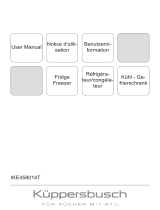 Küppersbusch IKE458014T User manual
Küppersbusch IKE458014T User manual
-
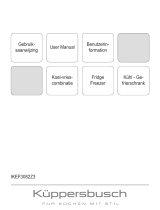 Küppersbusch IKEF3082Z3 User manual
Küppersbusch IKEF3082Z3 User manual
-
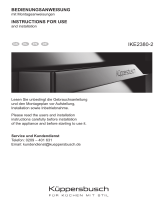 Küppersbusch IKE2380-2 User manual
Küppersbusch IKE2380-2 User manual
-
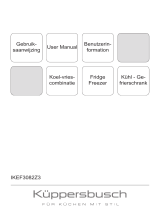 Küppersbusch IKEF3082Z3 User manual
Küppersbusch IKEF3082Z3 User manual
-
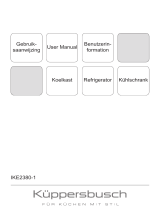 Küppersbusch IKE2380-1 User manual
Küppersbusch IKE2380-1 User manual
-
Küppersbusch IKE328022T User manual
-
Küppersbusch IKE327022T User manual
-
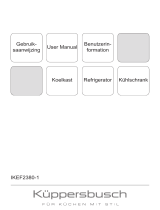 Küppersbusch IKEF2380-1 User manual
Küppersbusch IKEF2380-1 User manual
-
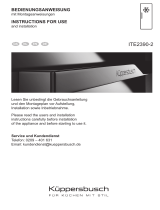 Küppersbusch ITE2390-2 User manual
Küppersbusch ITE2390-2 User manual















































